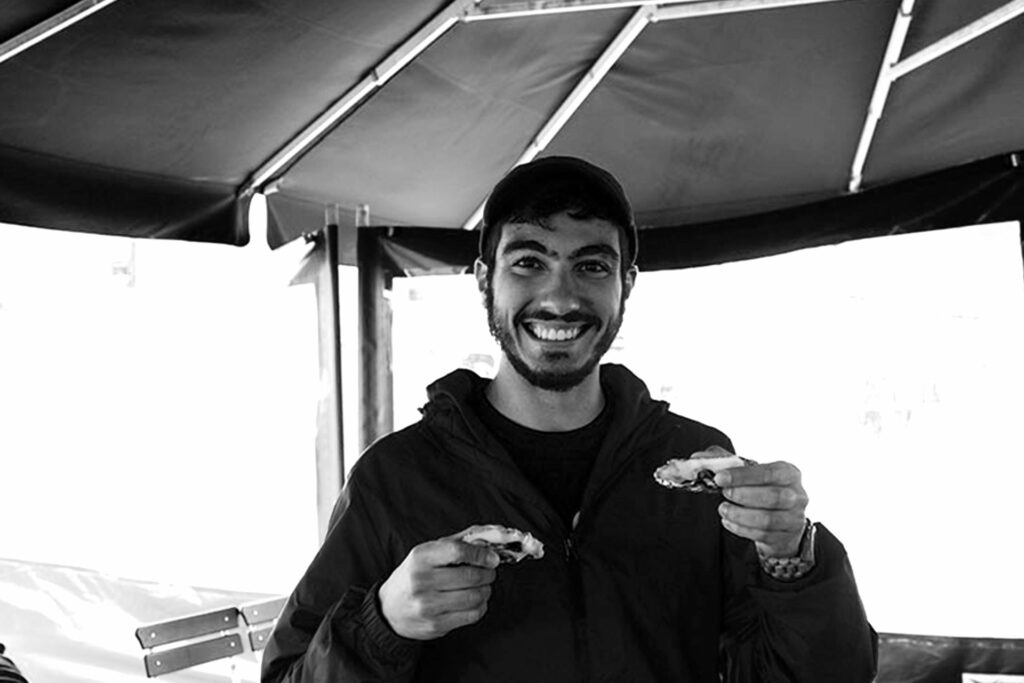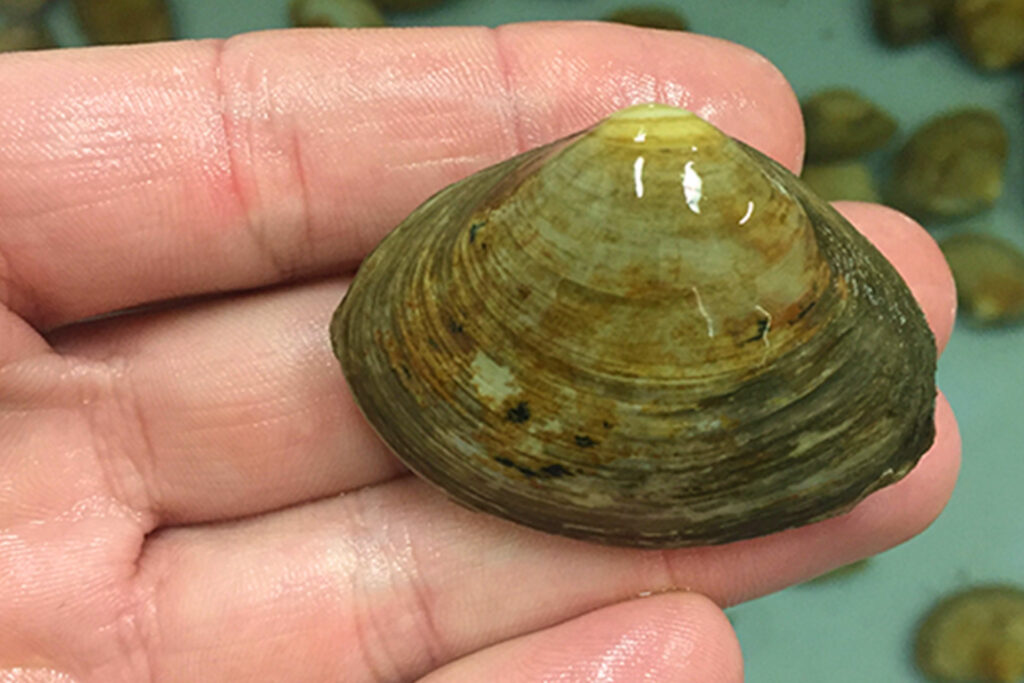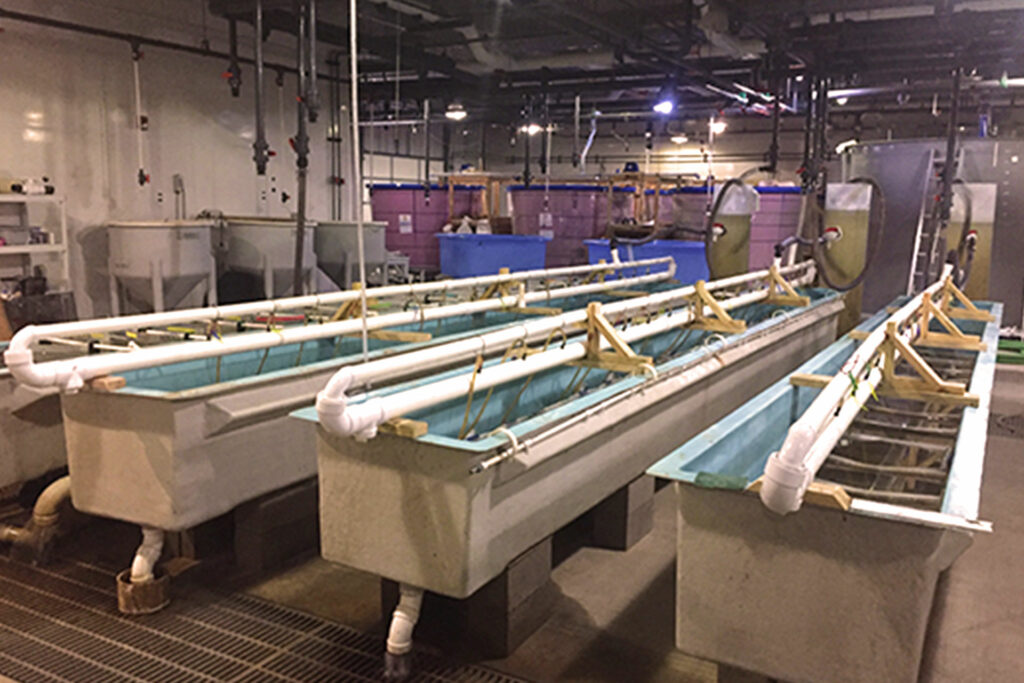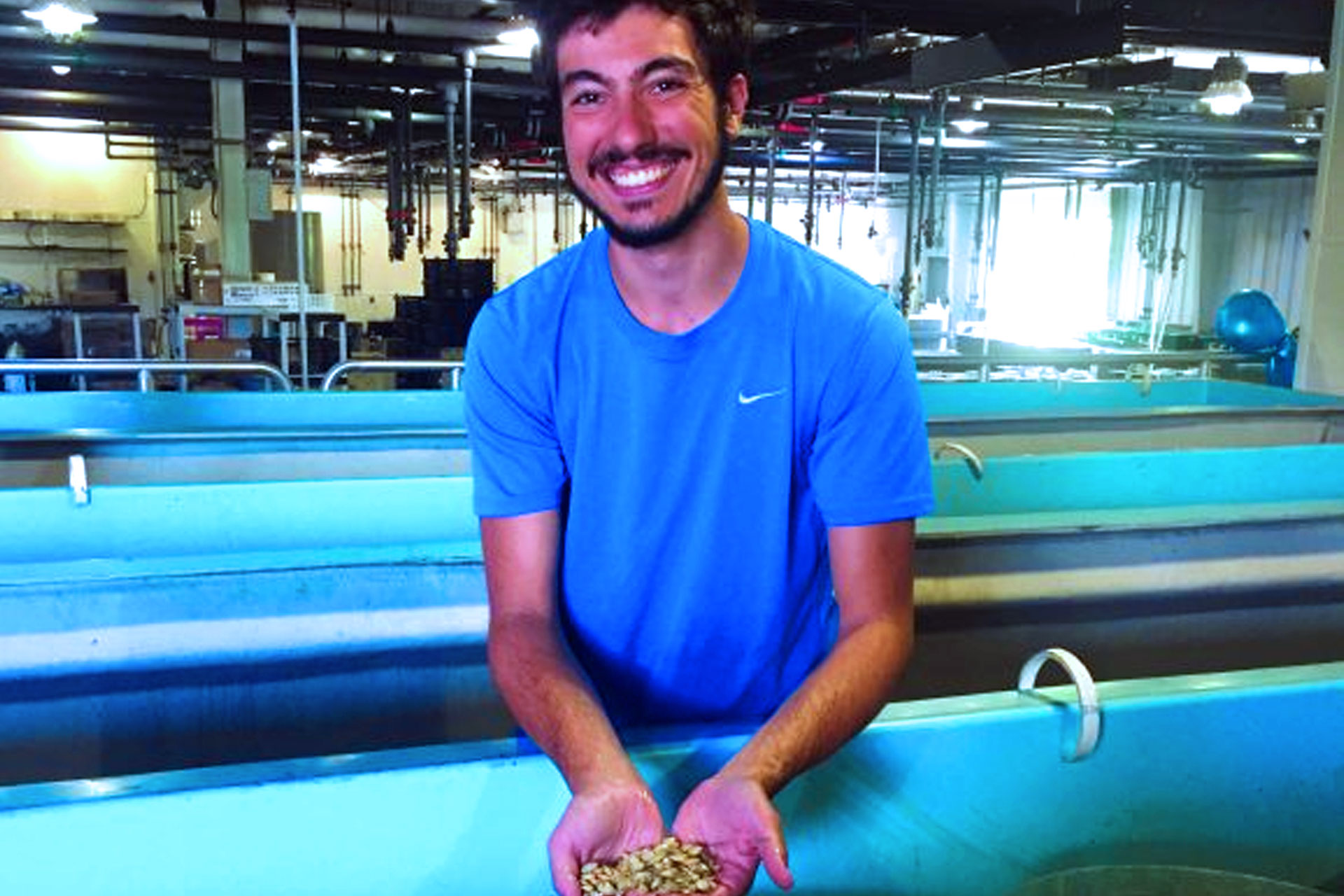I’m originally from Matawan, New Jersey. As a young man, scouting gave me the opportunity to explore and fall in love with nature. My favorite camping trip every year was to Sandy Hook, a peninsula that separates the Raritan Bay from the Atlantic Ocean. There, I caught fish, dug in the mud for clams, and collected seashells. For my Eagle Scout Project, I worked with the NY/NJ Baykeeper to organize an oyster gardening program at Cheesequake State Park. They say everyone remembers the first time they ate an oyster, but not everyone can say they remember the first time they grew one.

As an undergraduate at Tufts University, I explored the many realms of biology. With Dr. Kelly McLaughlin, I studied heart development and heart disease in the amphibian model species, Xenopus laevis. With Dr. Jan Pechenik, I studied the effects of hypoxia on a pollution-indicating polychaete, Capitella teleta. Throughout my time at Tufts, I continued working with the NY/NJ Baykeeper and my interest in aquaculture began to flourish.
I’m currently a third-year PhD candidate working with Dr. Daphne Munroe, and I’m an advocate for sustainable aquaculture practices that are beneficial to both farmers and aquatic ecosystem. Broadly, my doctoral research is focused on expanding aquaculture opportunities through ecologically-sound diversification.

I’m investigating the feasibility of Atlantic surfclam (Spisula solidissima) aquaculture. Today, only the Eastern oyster (Crassostrea virginica) and the hard clam (Mercenaria mercenaria) are grown on commercial scales in the northeastern United States, but since the surfclam is native, grows rapidly, and tastes delicious, it has great potential as an alternate crop. I’m working on identifying the optimal nursery and grow-out conditions for surfclam culture, which must be determined before mainstream production can occur. Since surfclams prefer colder water but our region is warming, I am also examining whether heat-tolerance is a heritable trait in this species. This information may inform future surfclam breeding programs.
Additionally, I am exploring the feasibility of bivalve polyculture. In its current state, bivalve farms are artificial ecosystems composed of high-density monocultures. Bivalve polyculture would transform these farms into more diverse and even communities that may lead to greater resiliency, stability, and productivity.

In addition to conducting research, I’m also the President of the Rutgers Ecology and Evolution Graduate Student Association. My priority as president has been to increase outreach activities in an effort to build strong connections between Rutgers and its surrounding communities. In my spare time, I enjoy gardening, cooking, and running.
Congratulations to Mike for being featured on the American Fisheries Society (AFS) website and read his AFS profile!

